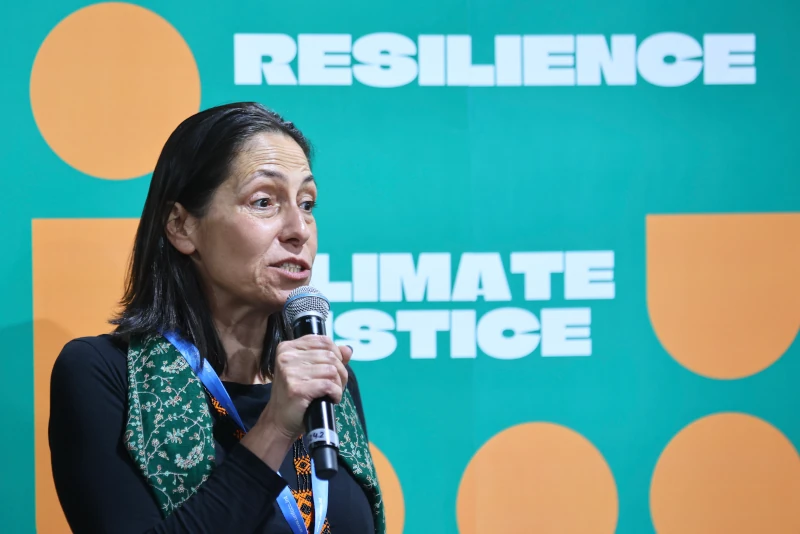In 2015, the same wave of enthusiasm that culminated in the Paris Agreement was also unfolding on the other side of the Atlantic. Out of that impulse were born two of Latin America’s leading climate foundations: the Institute for Climate & Society (iCS), from Brazil, and Climate Initiative of Mexico (ICM). Twin forces, they were conceived and incubated within the same U.S.-based project and launched with a shared mission: to firmly position Latin America at the center of global climate discussions.
“In that moment, we realised that it was mandatory to have organisations in the world’s main geographical areas with sophisticated analytical and mobilizing capacities that could serve to connect international funds and local actors”, explains Adrián Fernández, executive director of ICM. In 2015 he was leading a programme in the U.S.-based project that ended with the creation of iCS in 2015 and ICM in 2016.
A decade later, both organisations accumulate achievements and impacts. As members of the Regional Climate Foundations (RCF), both will participate in the activities of the RCF Pavilion at COP30, which will take place in Belém, Brazil, in November 2025.
“We will bring the voice of the global south to our pavilion”, suggests the executive director of the Institute for Climate & Society, Maria Netto. “The entire planet is vulnerable to climate change, but countries in the global south are highly dependent on natural ecosystems. In addition, our risk management systems are not that sophisticated, so when disasters strike, the economic cost to us is even greater”, she ads.
iCS has expanded the horizons in Brazil
Born to strengthen the voices of the Global South in climate discussions, the Institute for Climate & Society (iCS) developed programmes to expand the climate agenda beyond the Amazon, and encompass broader national development issues, including crucial sectors like energy and transport.
“Now, it isn’t anymore just an environmental agenda, it’s part of the development model we want for the future”, states the executive director of the Institute for Climate & Society, Maria Netto. “iCS played a central role in connecting networks, bringing together people from academia, civil society, local populations, the private sector, funders, and local governments to discuss and build solutions together”, she adds.
Since 2015, iCS has supported more than 1,180 projects in partnership with 460 organizations. This collaboration has channeled over US$ 120 million in donations directly towards the development of public policies, innovation, knowledge, and achieving social and economic impact.
Of Brazil’s 27 administrative regions, the organisation supported projects in 22. For example, it reached the Amazon, nurturing Tapajós de Fato, an independent media outlet in Pará state. It also pushed the research and education supporting FGV Clima, which is the center for economic and climate studies at the Fundação Getulio Vargas. For other organisations, iCS guided its entry and consolidation within the climate sphere, significantly enhancing their importance, communication capabilities, and political leverage.
The institute’s political articulation with government officials and parliamentarians has been crucial to developing instruments and climate policies in Brazil. The influence of iCS extends directly into the core of Brazil’s climate governance. Ana Toni, former executive director of the institute, now serves as the COP30 CEO.
iCS has expanded the horizons in Brazil
Born to strengthen the voices of the Global South in climate discussions, the Institute for Climate & Society (iCS) developed programmes to expand the climate agenda beyond the Amazon, and encompass broader national development issues, including crucial sectors like energy and transport.
“Now, it isn’t anymore just an environmental agenda, it’s part of the development model we want for the future”, states the executive director of the Institute for Climate & Society, Maria Netto. “iCS played a central role in connecting networks, bringing together people from academia, civil society, local populations, the private sector, funders, and local governments to discuss and build solutions together”, she adds.
Since 2015, iCS has supported more than 1,180 projects in partnership with 460 organizations. This collaboration has channeled over US$ 120 million in donations directly towards the development of public policies, innovation, knowledge, and achieving social and economic impact.
Of Brazil’s 27 administrative regions, the organisation supported projects in 22. For example, it reached the Amazon, nurturing Tapajós de Fato, an independent media outlet in Pará state. It also pushed the research and education supporting FGV Clima, which is the center for economic and climate studies at the Fundação Getulio Vargas. For other organisations, iCS guided its entry and consolidation within the climate sphere, significantly enhancing their importance, communication capabilities, and political leverage.
The institute’s political articulation with government officials and parliamentarians has been crucial to developing instruments and climate policies in Brazil. The influence of iCS extends directly into the core of Brazil’s climate governance. Ana Toni, former executive director of the institute, now serves as the COP30 CEO.


ICM had an impact even before it was launched
Even before its official launch, the Climate Initiative of Mexico (ICM) made a significant impact on the country’s climate policy. An example is its active involvement in campaigning for the 2015 Mexico Energy Transition Law. The technical body that later would work under ICM banner wrote the law’s text and advised government officials, according to Adrián Fernandez, the executive director of the institution. This effort resulted in the establishment of mandatory renewable energy targets, as having 43% of the energy from non-contaminating sources by 2030. “Within just two years, Mexico saw the installation of 8 GW of solar and wind energy capacity”, says Adrián Fernández, ICM executive director.
This early victory showed a clear purpose: to create a powerful grant-making entity capable of attracting international funds, analyzing climate policy, and directing investments to key projects. “At ICM our main objective is influencing public policy”, explains him.
As a re-granter, ICM also attracts international funds and connects them with local organisations and grassroots groups working on the front lines of climate change. “Perhaps what makes ICM different is that we combine a very diverse toolkit. We both give money to a network of partners, but we also do those very diverse things internally in-house, as a think tank”, he ads.
More recently, ICM created a civil society NDC (Nationally Determined Contribution) when the government failed in presenting climate targets. This was a policy document spanning 60 pages, backed by a 650-page technical analysis. When Mexico became the only G20 country without a net-zero target, ICM stepped up and produced its own net-zero roadmap.
Now, with Claudia Sheinbaum’s new administration in office, these documents are serving as the foundation for the government’s work on its third-generation NDC. “Our team is working within the Ministry of the Environment and the Ministry of Energy hand in hand to develop NDC 3.0 and get the best possible results”, ends Fernández.

